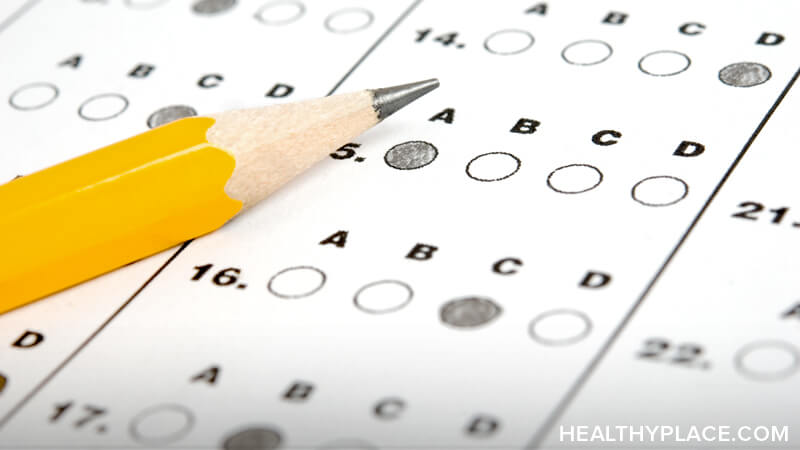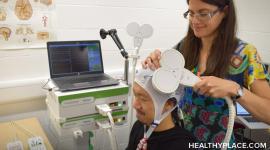Mental Illness Diagnosis Tests

Mental illness diagnosis tests are widely used by psychiatrists, psychologists, and therapists/counselors. But why? Many people feel anxious and intimidated by the thought of mental illness diagnosis tests. Are they making a judgement about who someone is as a person? Are they proving innate flaws? The answer to both of those questions is a strong, resounding, "No!" While it's natural to be anxious about the unknown, and testing in particular, learning about mental illness diagnostic tests can help ease these fears and reduce test anxiety.
Goal of Mental Illness Diagnosis Tests
"Seek first to understand and then to be understood." Probably without realizing it, Steven Covey captured the essence of tests for mental illness. This statement captures the goal of testing for both the practitioner and the client.
Mental illness diagnosis tests are designed to help both parties understand what's happening. Sometimes, when someone is in crisis or under extreme duress due to mental illness symptoms, it's hard to untangle them and discuss them in detail. To be sure, people can feel what's wrong, they can think about it, they are living it, but communicating clearly in a clinical setting is difficult. The goal of psychological assessments is to sort out the mental illness signs and symptoms, to understand not just the problems but the person's strengths, in order to arrive at the correct mental illness diagnosis.
These mental illness tests are used by practitioners because they seek to understand. Rather than hurting the client with a judgement or a label, such tests help him/her be understood. Equipped with all this understanding, proper mental health treatment and healing can begin.
What is a Mental Illness Diagnosis Test?
A test for mental illness is a mental health assessment that looks for specific psychological traits, abilities, and problems. Some, like the Minnesota Multiphasic Personality Inventory-2 (MMPI), are global assessments that contain questions about a wide range of symptoms, functioning, and personality traits. These are useful when it's not immediately clear what disorder might apply to someone. Other tests are disorder specific and check for symptoms that are part of that disorder. Depression tests, anxiety tests, and eating disorder tests are just a few examples of the types of tests specific to diagnostic categories. (Check out the HealthyPlace.com Online Psychological Tests for many tests you can take.)
A test is an assessment, or a measurement, of symptoms. Sometimes, the word "test" has negative connotations, and the very word can induce anxiety. Mental illness diagnosis tests aren't like tests in school. The don't have "right" or "wrong" answers, there are no grades nor is there a scale to rank you from A-F, and there most certainly is no failing. These assessments are designed to create an accurate picture of a problem so someone can receive proper help and treatment.
Mental illness diagnosis tests have different names, such as:
- psychological test or assessment
- neuropsychological test or assessment
- psychoeducational test
- psychological measurements
- mental illness screenings
- inventories
Types of Mental Illness Diagnosis Tests
Mental illness tests go by different names; additionally, there are different types of tests that look for different things. They're used at different stages of the treatment process, and they all share the goal of understanding what's going on with someone in order to plan the best, most effective treatment. Some of the various types of tests for mental illness include:
- general screening questionnaires
- specific screening questionnaires
- symptom rating scales
- neuropsychological tests (measurements of how thinking processes are organized)
- self-report assessments
- assessments for specific populations (individuals, primary care physicians, mental health professionals)
- age-group-specific assessments (children, adolescents, college-age, adults, older adults)
Importance of Mental Illness Assessment
Screening people regularly in primary health care and other health care settings is something that would identify mental health problems before they spiral out of control. Further, assessment is a crucial early step when people begin seeing a mental health professional. Mental illness diagnosis tests help providers understand, and help clients be understood, so that the right kind of treatment can begin.
APA Reference
Peterson, T.
(2019, October 23). Mental Illness Diagnosis Tests, HealthyPlace. Retrieved
on 2026, March 4 from https://www.healthyplace.com/other-info/mental-illness-overview/mental-illness-diagnosis-tests



